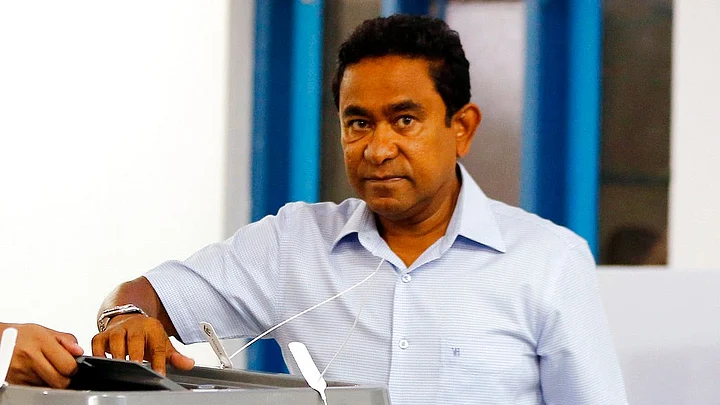The Maldives' top court on Sunday, 21 October, dismissed the outgoing president's petition seeking an annulment of last month's presidential election result.
The five-member Supreme Court ruled unanimously that the election was conducted within the law. No other details were immediately known.
The Election Commission had declared opposition alliance candidate, Ibrahim Mohamed Solih, the winner of the 23 September election against President Yameen Abdul Gayoom.
Yameen's party challenged the result, alleging vote rigging, fraud and corruption in the election process.
Four of the five members of the Election Commission fled after the election, citing intimidation by Yameen's supporters.
President-elect Solih’s spokeswoman, Mariya Didi, said “the case was based on conjecture and conspiracy theory.”
"We are pleased that the court ruled unanimously to uphold the will of the people. There is zero evidence that the election was fixed," Didi said in a tweet.
President Yameen "should do the honorable thing: accept defeat and ensure a smooth transfer of power," she said.
Here’s What Happened
The Maldives, an Indian Ocean archipelago nation known for its luxury resorts, became a multiparty democracy in 2008 after decades of autocratic rule. Yameen is accused of rolling back many of the democratic gains.
Solih was chosen as the Maldivian Democratic Party's presidential candidate at a party congress in July, after exiled former President Mohamed Nasheed abandoned plans to run because of legal obstacles.
Nasheed has been sentenced to 13 years in prison, making him ineligible to contest the election. The verdict was widely criticized as politically motivated.
The Supreme Court earlier this year ordered Nasheed's release and retrial, but the government refused to implement the ruling.
Yameen had expected to contest the election virtually unopposed, with all of his potential opponents either in jail or forced into exile. Following the Supreme Court order to release and retry Nasheed, the government arrested the chief justice and another judge. The remaining three Supreme Court justices then reversed the order.
In the Maldives' first multiparty election in 2008, Nasheed defeated 30-year autocrat Maumoon Abdul Gayoom.
Nasheed resigned in 2012 amid public protests over his order to the military to detain a sitting judge. He lost the 2013 election to Gayoom's half brother, Yameen, who has reversed many of the country's democratic gains.
Gayoom is now an ally of the pro-Nasheed coalition and was jailed by his half brother.
Yameen's administration has also jailed his former vice president, two defense ministers, the chief justice and a Supreme Court judge, as well as many other politicians and officials.
(This story has been published in an arrangement with AP)
(At The Quint, we question everything. Play an active role in shaping our journalism by becoming a member today.)
